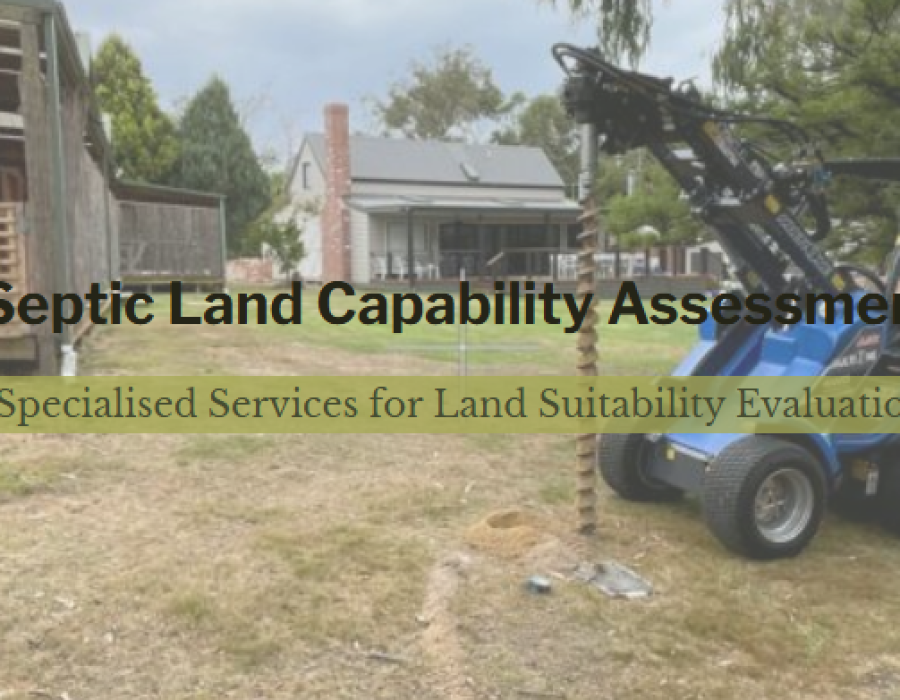When considering a land development project, whether for commercial, residential, or industrial purposes, one of the key factors to address is the land’s capability. A commercial land capability assessments (CLCA) is a detailed evaluation designed to determine how well a piece of land can accommodate specific developments, including the necessary infrastructure, soil composition, and the sustainability of the land for such projects. For property developers, builders, or business owners, understanding the nuances of land capability is crucial in ensuring that the project will be successful and compliant with local regulations.
What Is a Commercial Land Capability Assessment?
A Commercial Land Capability Assessment is an analysis conducted by experts to assess a piece of land’s potential for development. The purpose of the assessment is to ensure that the land can sustain the intended project without causing environmental damage or facing significant construction challenges. This assessment typically looks at various aspects, such as soil quality, slope, vegetation, drainage, and proximity to services such as water, electricity, and roads. It also evaluates how suitable the land is for construction and whether it will be able to support the intended development in the long term.
In Australia, one of the companies leading this field is Septic Land Capability Assessment, which specializes in development land capability assessment services. Their expertise provides developers, property owners, and other stakeholders with the knowledge needed to make informed decisions when planning commercial land developments.
Key Elements of Commercial Land Capability Assessments
- Soil Quality and Composition
The soil composition is one of the most critical factors in a commercial land capability assessment. Soil type affects everything from the feasibility of excavation to how well a building’s foundation will perform over time. For example, sandy soils may not provide the same stability as clay or loamy soils. Additionally, soils with high organic content or clayey soils may present issues such as poor drainage, which can affect both the construction process and long-term building stability.
- Drainage and Flood Risk
Land that is prone to flooding or poor drainage can cause significant problems for commercial developments. Drainage systems must be assessed to ensure that water will flow properly away from the building and surrounding areas. Moreover, areas that are prone to flooding may require additional planning to mitigate the risks, which could involve the use of retaining walls, raised foundations, or specific landscaping measures.
- Topography and Slope
The slope of the land plays a vital role in a land capability assessment. Steep slopes can complicate construction by increasing costs or creating safety hazards. Uneven topography may require significant grading, which can add to both the expense and time required for the project. For commercial development, a flat or gently sloped site is typically ideal, but with the right assessment and planning, development on sloped land is possible.
- Environmental and Ecological Considerations
Environmental factors, such as the presence of endangered species or vegetation that needs to be preserved, can influence the land’s ability to support development. Developers must account for any environmental restrictions that may apply to the land and may be required to implement measures to protect sensitive ecosystems.
- Accessibility and Infrastructure
The proximity to roads, water supplies, sewer systems, and electrical grids can significantly impact the cost and feasibility of development. A land capability assessment will evaluate the ease of access to these utilities and ensure that the site can be connected to necessary infrastructure without significant delays or expenses.
- Zoning and Regulatory Compliance
Local government regulations and zoning laws are a crucial part of any land development project. A thorough land capability assessment will include a review of local zoning laws to ensure that the land can be developed as intended. In some cases, a change in zoning or additional permits may be necessary before work can proceed.
Why Are Development Land Capability Assessment Services Crucial for Commercial Projects?
For any commercial land development, understanding the land’s limitations and opportunities is paramount. Development land capability assessment services offer several key benefits:
- Risk Mitigation
By identifying potential challenges upfront, a land capability assessment helps to reduce the risk of unexpected costs or delays during the construction process. For example, discovering poor soil quality or the need for extensive grading after construction has started can lead to significant disruptions. With a detailed land capability report, developers can plan ahead, allocate resources efficiently, and minimize surprises.
- Compliance with Local Regulations
In Australia, like many other countries, land development must adhere to various local and national regulations. Failure to meet these regulations can lead to costly fines, delays, or even the halting of a project altogether. A land capability assessment ensures that your project complies with zoning laws, environmental restrictions, and other regulatory requirements, giving you peace of mind and allowing you to move forward confidently.
- Cost-Effectiveness
Land development is an expensive undertaking, and every dollar counts. A thorough assessment can help identify potential cost-saving measures, such as areas where you might not need extensive grading, or where the installation of infrastructure can be done in the most cost-effective way. By understanding the land’s capabilities early on, developers can make smarter decisions that help stay within budget.
- Sustainability Considerations
Sustainability is becoming an increasingly important focus in land development. Many commercial projects now need to incorporate eco-friendly features, such as green buildings, water-efficient landscaping, or renewable energy sources. A land capability assessment can help identify areas where these sustainable practices can be implemented effectively.
- Increase in Property Value
Understanding the land’s full potential allows developers to make the most of the available space, optimizing the layout, and ensuring that the property is utilized in the best possible way. A commercial land capability assessment helps developers create spaces that not only meet regulatory standards but are also appealing to tenants and buyers, ultimately increasing the property's market value.
The Role of Septic Land Capability Assessment
A specialized service, such as Septic Land Capability Assessment, plays an essential role in ensuring that commercial developments adhere to environmental and regulatory guidelines. Septic systems, in particular, are crucial for sites that are not connected to public sewer systems. Assessing the land’s ability to support such systems is vital for avoiding contamination and ensuring that the development is sustainable in the long run.
Septic systems must be designed to handle the wastewater output of a commercial development, and the land’s soil and topography will affect how effectively these systems function. Septic Land Capability Assessment experts evaluate factors like soil percolation rates, groundwater levels, and proximity to water bodies to determine whether a septic system is feasible. They also assess the potential impact of a septic system on the environment to avoid issues such as contamination or poor drainage.
Conclusion
Whether you’re planning to build a new office park, retail space, or any other type of commercial development, a Commercial Land Capability Assessment is essential for understanding the land's suitability. By assessing soil quality, drainage, environmental considerations, infrastructure, and zoning compliance, this evaluation provides the information you need to plan and execute a successful project.
Septic Land Capability Assessment, with its specialization in development land capability services, ensures that your project meets all the necessary requirements for sustainability, environmental protection, and long-term success. When you partner with experts in land capability assessments, you’re not only investing in the future of your project, but you're also ensuring that you make the best use of the land available.







Comments